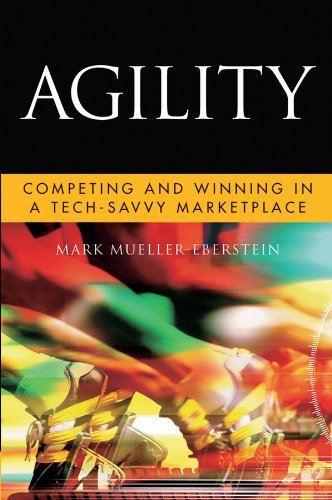11th Mar. '13
 Looking back at the last decades, one industry—the software industry—has fundamentally transformed how we live, communicate and work, heck, even how we relate and stay in touch with each other.
Looking back at the last decades, one industry—the software industry—has fundamentally transformed how we live, communicate and work, heck, even how we relate and stay in touch with each other.
Nothing has been even remotely as transformative as the inventions software has brought us. Apple, Microsoft, Google, Facebook and LinkedIn have transformed both consumer and business world, reshaping complete industries with their innovations.
Creating this product called “innovation” has become not only a new way of production but has shaped the development and management of the organizations behind it.
Traditional project management (think GE and 6 sigma) has been the gold standard for planning and predictable execution in the past. And many of the principles learned and optimized are still good. They are just not sufficient in a world of increased complexity where change is constant, competition vigilant and customers eager to adopt the latest innovations.
In the software development world, traditional project management has been adapted, simplified, improved… evolved… into an agile approach, often described as “Scrum”. Scrum’s approach not only shortens feedback cycles and development times, it turns small teams into managers of their own fate. Is that so different from what we propose in “No Fear”? Not really. It goes to the heart of engagement and empowerment of the front lines.
Scrum and agile software development practices have been now well documented. Ken Schwaber, one of the co-developers of the Scrum process and signatories to the original Agile Manifesto from 2001, explains why “as complexity increases, central control and dispatching systems break down”. In such situations of increasing complexity, the traditional approach can only apply additional rigor to the system but oftenonly yields some limited short term success.
People and organizations looking to prevail in the mid- and long-term have a different approach. They are embracing and fostering a system where “independent agents” operate under a set of (simple) rules. Their leaders relinquish control to the independent agents doing the actual workso the agents—the frontline closest to the customer—make decisions. Successful companies and organizations decentralize and deregulate traditional control. When talking about scrum, Schwaber is adamant, that it involves and requires a “paradigm shift from control to empowerment, from contracts to collaboration” and from documentation to actual work product.
As Mary Poppendieck points out, an agile approach like Scrum “unleashes the brainpower of many minds on a problem.” The approach brings a set of diverse and networked thinkers together to find novel and innovative solutions for difficult and complex challenges. Fast! Empowerment of the front line allows customer focused engagement that characterized a Professional Services Firm in the product development world.
In “No Fear” we outlined the importance and challenges for leaders when transforming organizations and ourselves to empower the front lines. Looking at the software industry provides some additional insights and case studies that can be leveraged across industries and organizations.
Organizations need to discuss central rule setting—and rule adapting & upholding—versus the distribution of power to individuals and how it impacts organizational strategy, philosophy or politics. Sure, in the short term, a traditional top down approach might be beneficial to set a framework and rules or tackle an immediate crisis. But, ultimately, organizations with an educated, empowered and motivated population are vastly more successful and innovative.
Comments:
